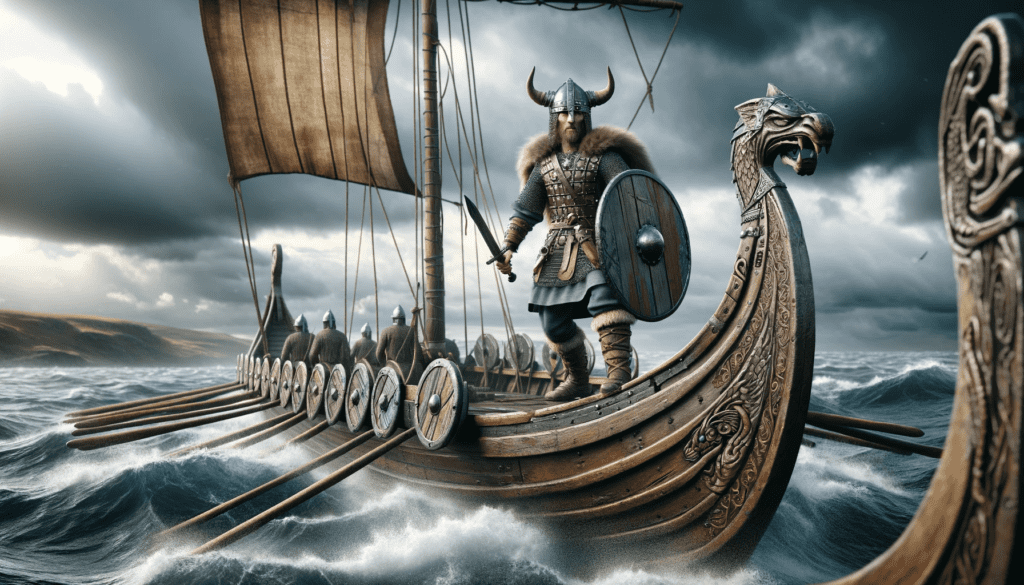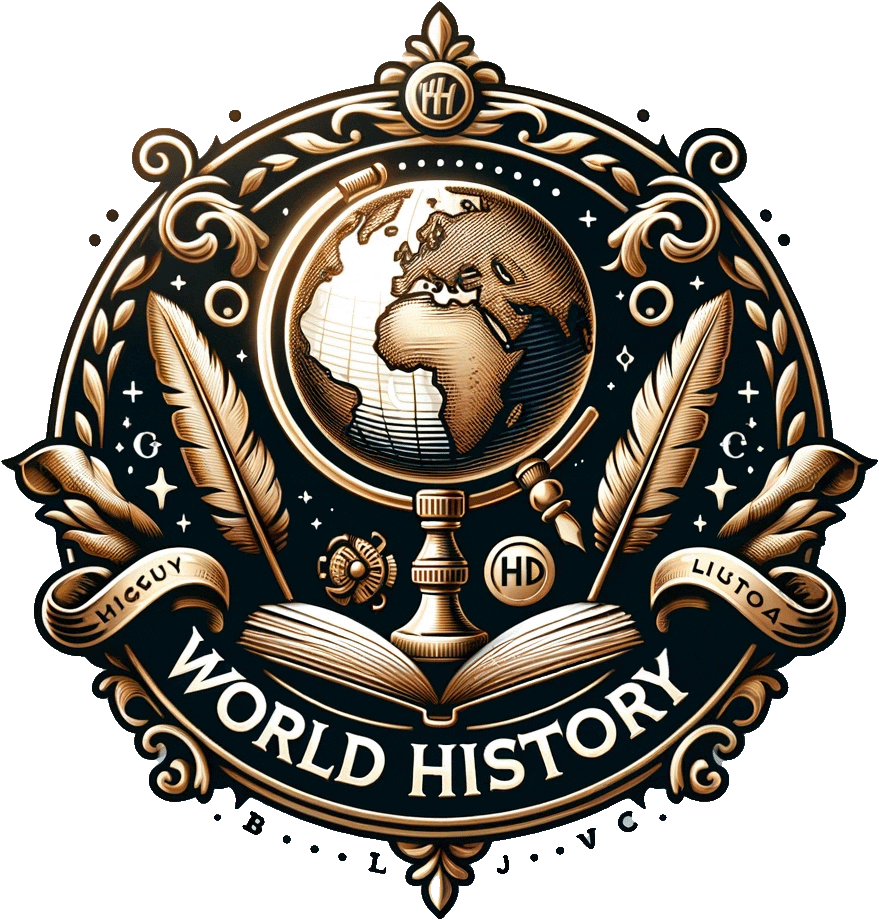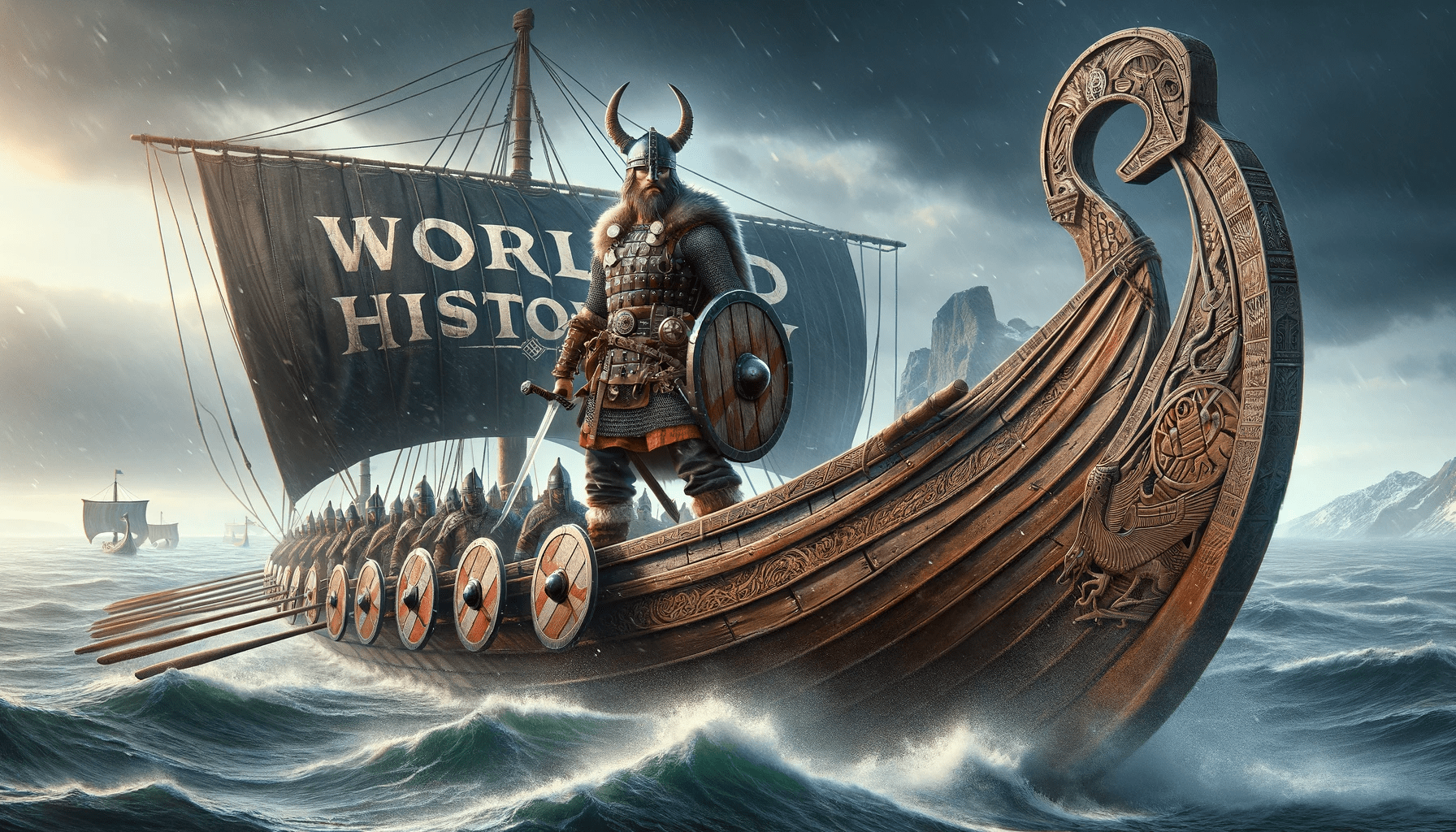The Vikings: Conquerors of the Old World
The Vikings, known for their fearlessness and sea exploration skills, left an indelible mark on the history of Europe. This article delves into their origins, influence and legacy.
Origin of the Vikings
The Vikings, originally inhabitants of what is now Scandinavia, began their epic conquests around the 8th century. Known as crafty sailors, they explored and plundered over a vast area, from the British Isles to the shores of North America.
The Society and Culture of the Vikings
The Viking community was strong and organized. Men and women had distinct but sometimes overlapping roles within their societies. Their myths and stories, recorded in Norse mythology, reflect the values, dreams and fears of these tough people. Crafts, trade and farms were also central to their daily lives.
The Inheritance of the Vikings
Although often remembered as looters and warriors, the Vikings were also traders, explorers and settlers. They left a lasting impact on the territories they conquered or influenced, including linguistic influences and genetic traces that can be seen to this day. Their voyages of discovery to North America, hundreds of years before Columbus, highlight their daring and navigational prowess.
Over the centuries, the Vikings evolved from fearsome invaders to complex figures whose full story is still being unraveled by historians and archaeologists. Their history continues to fascinate and inspire, a reminder of an era when the world was much larger and each new adventure could lead to wealth, fame, or ruin.
Trade and Discoveries of the Vikings
In addition to their reputation as warriors, the Vikings were also adept traders and explorers. They traveled far, from the Arab world to North America, trading in goods such as furs, shore rustles and slaves. These trips brought them into contact with different cultures, which fostered the exchange of ideas and technologies. The Vikings established settlements and trading posts over a wide geographic area, establishing a network of trade routes that reached far beyond their Scandinavian homeland.
Influence of the Vikings on the Modern World.
The legacy of the Vikings extends into modern times. Their social structures, laws and customs influenced the formation of modern Scandinavian societies, and their genetic traces can still be found in the populations of many countries they touched. The stories of the Vikings, recorded in sagas and songs, remain a popular source of inspiration for books, films and television programs. Their discovery of new lands and cultures, as well as their innovative shipbuilding and navigation techniques, had lasting effects.
The modern world has many aspects that can be traced back to the influence of the Vikings, from linguistic contributions to political and social systems. Their history teaches us about the power of discovery, adaptability and the complexity of human societies.



Leave a Reply